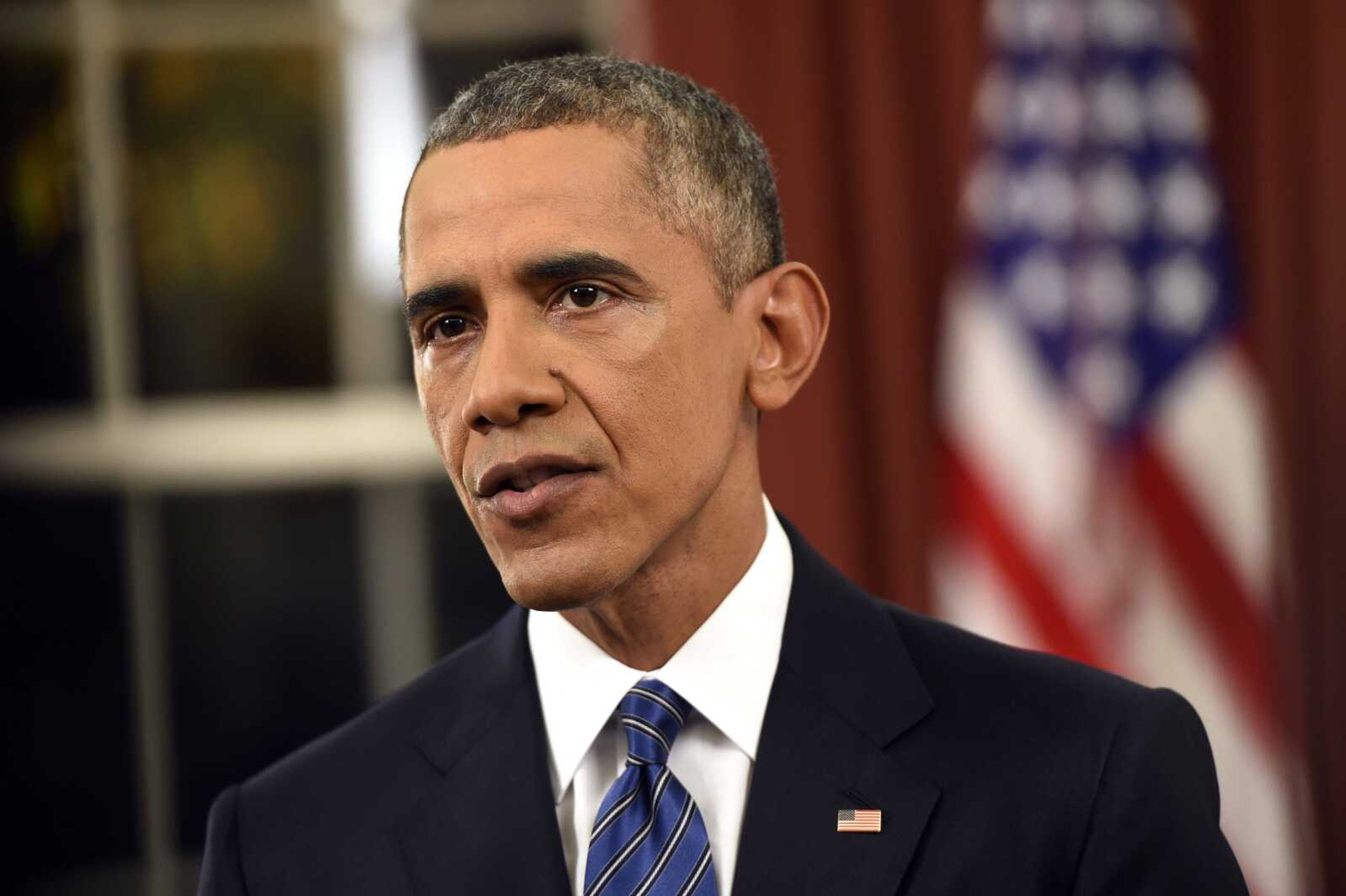Republicans assail Obama on ISIS, despite similarities in policy
WASHINGTON -- Minutes after President Barack Obama spelled out plans to protect Americans from terrorism, Marco Rubio declared he "may have made things worse." Jeb Bush called the president "weak" and his approach "business as usual." Donald Trump declared on Twitter, "We need a new President --FAST!"...
WASHINGTON -- Minutes after President Barack Obama spelled out plans to protect Americans from terrorism, Marco Rubio declared he "may have made things worse." Jeb Bush called the president "weak" and his approach "business as usual." Donald Trump declared on Twitter, "We need a new President --FAST!"
Yet beneath their rhetoric lies a fundamental political reality: Few in the Republican Party's 2016 class would break significantly with the Democratic president's approach to combating the Islamic State group.
The Republican criticism that continued Monday focused on the president's tone, his word choice and the fine points of his plans -- not, in most cases, the policy prescriptions he presented in his address from the Oval Office on Sunday night.
Bush twice acknowledged he agreed with the president's approach in specific areas. But he chided Obama's planning for lacking "the intensity that's necessary."
"He needed to persuade people that our fears will subside when we're engaged actively in the destruction of ISIS, and from there you would have a strategy that would be much more comprehensive," Bush said. He outlined a plan to strengthen the existing U.S. effort to train local forces and engage Sunni tribal leaders.
Like Obama, most of the GOP's White House hopefuls oppose the use of many U.S. ground troops, preferring to send a limited number of special forces to train and support anti-Islamic State forces in the region. Like Obama, they support an aggressive air campaign to bomb the Islamic State group -- and its reliance on oil revenue -- across Iraq and Syria.
There are differences in some cases -- most notably on the GOP's support (shared by Democratic contender Hillary Clinton) for a no-fly zone in Syria.
But on a broader U.S. approach to taking on ISIS in the Middle East, leading Republicans have more in common than not with the president they hope to replace.
Rubio, when asked how he'd differ from Obama, focused on style rather than substance.
"First, we would be straight forward and honest with the American people," the first-term Florida senator said on Fox News. "ISIS is a growing, significant and very serious threat. They're not contained."
Rubio opposes a significant increase in U.S. ground troops, instead calling for "a substantial ground army that needs to be made up primarily of Sunni Arabs from the region." He says that force would "need American special operators, a significant increase in air support, and we will have to beef up our intelligence programs."
Bush called last month for sending U.S. troops to the Middle East but was not specific on numbers and said, "The bulk of these ground troops will need to come from local forces that we have built workable relationships with."
The Obama administration last week announced plans to expand the U.S. special operations force in Iraq and Syria to help fight Islamic State militants. Defense Secretary Ash Carter said the expeditionary force would be more than 50 but would not be more specific. Other U.S. officials said the number would be about 100.
There currently are about 3,500 U.S. troops in Iraq, and Obama had previously announced he was sending fewer than 50 special operations forces to Syria.
Texas Sen. Ted Cruz, who appears to be rising in the polls, echoed Rubio's charge that the bombing effort isn't aggressive enough.
Cruz, while campaigning in South Carolina on Monday, said the air campaign against the ISIS militants is a "photo op foreign policy." He promised in an earlier radio interview to "carpet-bomb them into oblivion." He also supports sending arms directly to the ethnic Kurds to help defeat ISIS fighters.
The Obama administration is already taking steps on both fronts.
Altogether, fighter jets, bombers, attack planes and drones are dropping an average of 2,228 bombs per month on Islamic State targets: training camps, machine gun positions, oil facilities, weapons shacks and more. The Pentagon says it doesn't do body counts, but the attacks are believed to have killed upward of 20,000 ISIS fighters. The U.S. price tag: $5 billion since August 2014.
The United States also has begun more aggressive airstrikes against the oil infrastructure in Syria that produces a large share of the Islamic State group's revenue.
And the Pentagon says it is already arming ethnic Kurds in Iraq in a way that allows the Iraqi government to see the contents and give customs approval. The reason for letting the Iraqi government sign off on the shipments, Carter said, is to show U.S. support for a multisectarian central government in Baghdad.
Absent significant policy differences, many Republicans have seized on Obama's tone.
"The attitude has to be different," retired neurosurgeon Ben Carson told ABC's "Good Morning America" on Monday. "We have to have a commander in chief who is willing to come out forcefully against this so that the American people have confidence that something is being done."
Carson said he would focus on "using the banking system and all the monetary mechanisms available" against terrorists, but he didn't elaborate on how he would differ from Obama's policy.
Trump had promised to provide live commentary about Obama's speech on Twitter, but offered little as it unfolded. He seemed disappointed. "Is that all there is?" he tweeted.
Trump also questioned the president's use of the acronym "ISIL" in describing Islamic State militants and, like other Republican candidates, continued to criticize Obama's refusal to use the term "radical Islamic terrorists."
Connect with the Southeast Missourian Newsroom:
For corrections to this story or other insights for the editor, click here. To submit a letter to the editor, click here. To learn about the Southeast Missourian’s AI Policy, click here.










